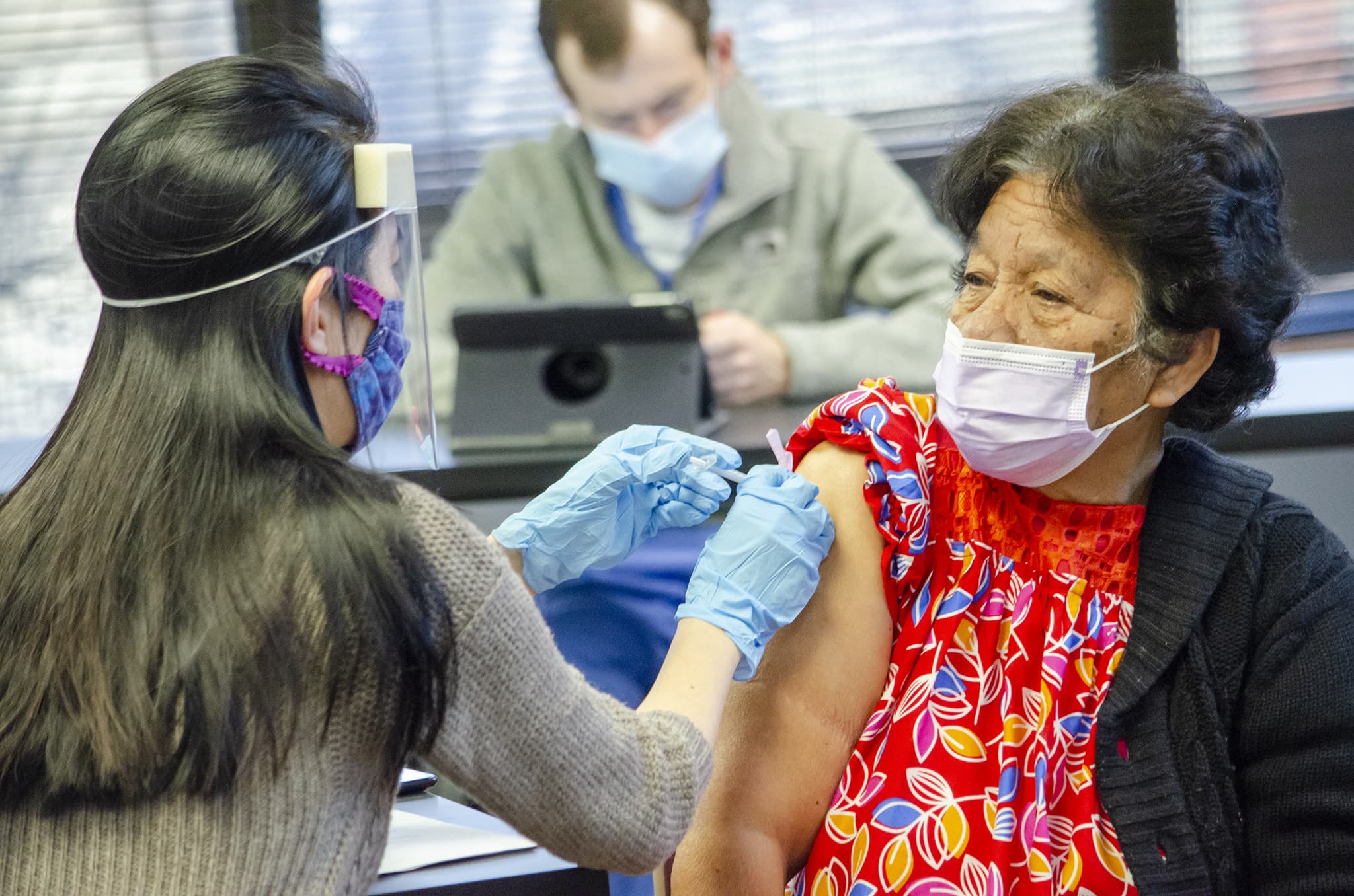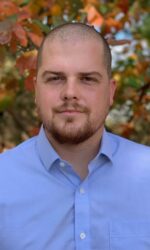View Larger Image

A Marshallese resident in Northwest Arkansas receives a COVID-19 vaccine shot.
UAMS COVID-19 Study Earns Publication’s Translational Science Award
| A UAMS team’s article on COVID-19 vaccine hesitancy recently received the 2022 Clinical and Translational Science Award from the American Society for Clinical Pharmacology & Therapeutics (ASCPT).
The study, “COVID-19 Vaccine Hesitancy: Race/Ethnicity, Trust and Fear,” became the most downloaded paper in 2021 from ASCPT’s journal Clinical and Translational Science. The study was conducted by researchers at the Office of Community Health and Research, directed by Pearl A. McElfish, Ph.D., MBA. Don Willis, Ph.D., an assistant professor, is the paper’s lead author.
John Wagner, M.D., Ph.D., the Clinical and Translational Science journal’s editor-in-chief, said the award recognizes the paper that most reflects ASCPT’s goals of advancing diversity, equity and inclusion (DEI).
“This paper best fit the bill as a terrific example both of DEI and translational science,” Wagner said.
The award was announced by ASCPT during its annual meeting in March.
The paper resulted from a survey of Arkansans who have joined the UAMS Translational Research Institute’s ARresearch registry, which by March included more than 8,400 residents from all 75 counties.
“We used the ARresearch database exclusively, and the sample was really good and really diverse in terms of race and ethnicity,” Willis said.
The ARresearch registry generated a 31.6% survey response rate (1,288 of 4,077 registrants contacted), a high percentage considering the extensive length of the survey, Willis said. The high number and diversity of respondents helped generate the paper’s high quality results.
The Study Highlights section of the paper states, “This study was the first to look at sociodemographic differences in COVID-19 vaccine hesitancy in a highly vulnerable rural state that ranks third for prevalence of individuals at high risk for serious illness from COVID-19. The COVID-19 vaccine hesitancy was highest among respondents with lower household income, some college and little to no fear of infection from COVID-19.”
Willis said access to the free registry made it possible to conduct the study much more quickly. It also avoided the high cost of purchasing valid emails or phone numbers for a random sample survey.
“The registry is an incredible resource because it includes people who are already motivated to participate in research,” he said. “It’s very different from random sample surveys in which you’re emailing or calling people who may not want to be bothered, and the response rate with those can be very low.”
By March, the comprehensive survey had led to five published papers and more were in production.
